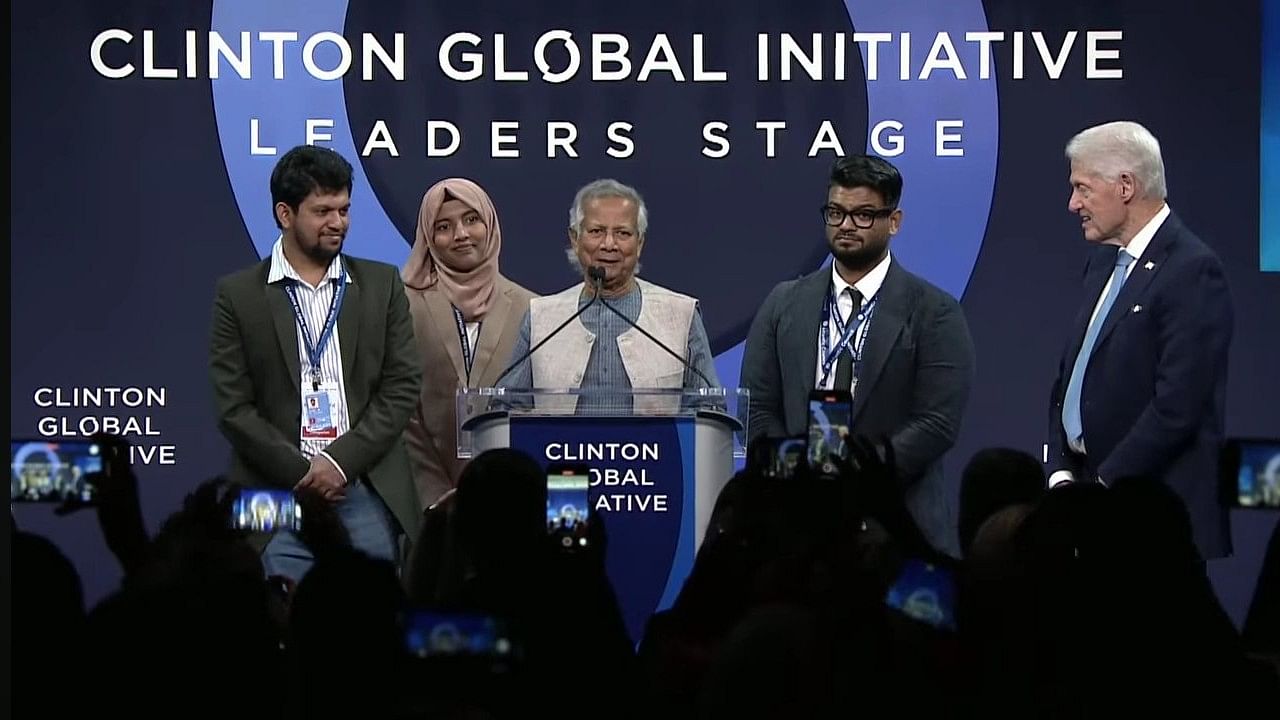
Mahfuz Alam (extreme left) shares the staged with Muhammad Yunus (centre)
Credit: X/@PREMIUMERZA
Bangladesh’s interim government advisor Dr Muhammad Yunus in his address at the Clinton Global Initiative introduced the 'brains' behind the movement that led to the ouster of Sheikh Hasina.
As the audience applauded, Yunus welcomed on stage three youngsters as he claimed that though they might seem like any other young person no one would recognise, but when one sees them in action and hears their speeches, their perception will change.
"They shook the whole nation by their speeches, by their dedication, their commitment," Yunus said adding that these youngsters were ready to put their lives as stake as they refused to give up.
Yunus then pointed out at one of the three youngsters, Mahfuz Alam, who is his special assistant as per the Dhaka Tribune, and called him the "brains behind the whole revolution".
"He denies it repeatedly. He says not me, many others. But that is how he is recognised that he is the brain behind the whole thing."
Yunus then claimed that the widespread movement in Bangladesh did not "just suddenly" come up, they were "meticulously" designed, as he lauded their leadership pattern.
"Even the leadership pattern. People don't know who the leader is. So you can't catch one and say, okay, it's over. It's not over."
Crediting the three on stage with creating a new version of Bangladesh, Yunus urged the crowd to give them a huge round of applause and wish them success as he concluded his speech.
Meanwhile, Bangladesh's army chief vowed to back the country's interim government "come what may" to help it complete key reforms after the ouster of Prime Minister Sheikh Hasina, so that elections could be held within the next 18 months.
General Waker-uz-Zaman and his troops stood aside in early August amid raging student-led protests against Hasina, sealing the fate of the veteran politician who resigned after 15 years in power and fled to neighbouring India.
In a rare media interview, Zaman told Reuters at his office on Monday that the interim administration led by Nobel laureate Muhammad Yunus had his full support and outlined a pathway to rid the military of political influence.
"I will stand beside him. Come what may. So that he can accomplish his mission," Zaman, bespectacled and dressed in military fatigues, said of Yunus.
Yunus has promised essential reforms in the judiciary, police and financial institutions, paving the way for free and fair elections in the country of 170 million people.
(With Reuters inputs)